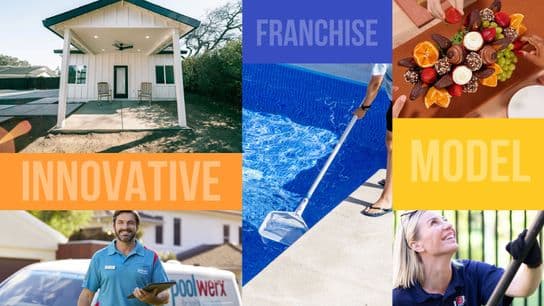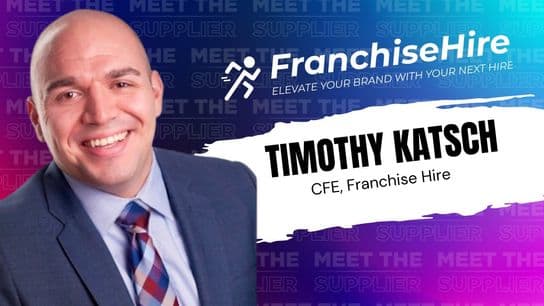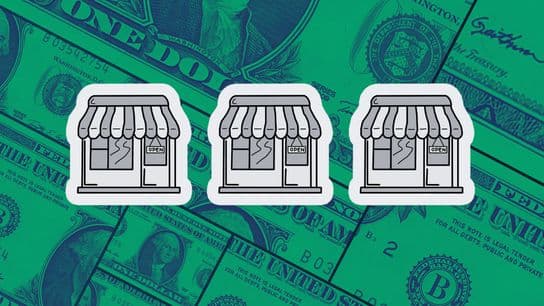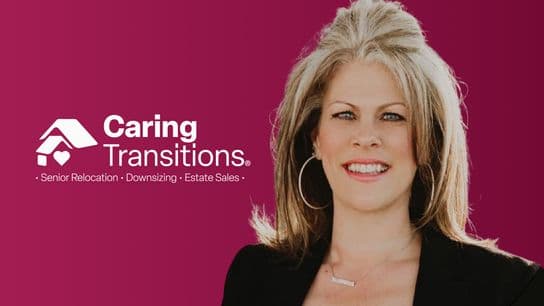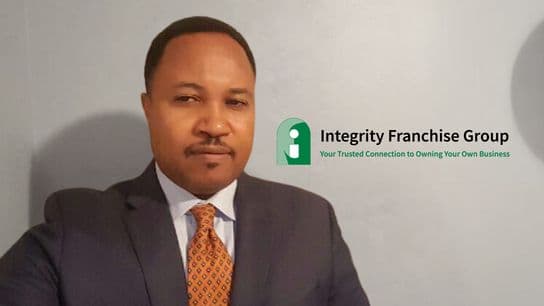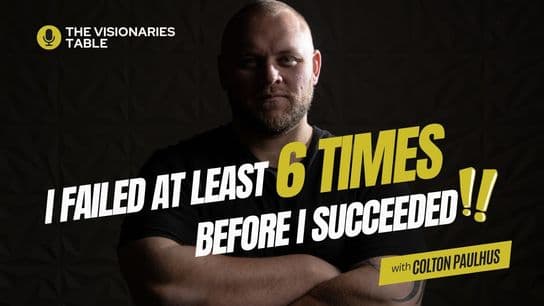What Virginia’s Economic Outlook Means for Franchisors
If you’re a franchisor looking to develop your business in Virginia, you’ll want to consider the state’s policy variables and growth rates when scaling your plans.
This summer, ALEC-Laffer published its annual Economic Competitiveness Rankings, which forecasts a state’s current standing within 15 state policy variables. The report features two different rankings: Economic Outlook — a forecast based on a state’s current standing in 15 state policy variables — and Economic Performance — a retrospective measure based on a state’s performance over a 10-year period from 2008 until 2018. For the state of Virginia, these rankings reveal a lot about where the state economy is going and where there is opportunity for their economy to grow.
- 2020 Outlook Ranking: 16
- 2008–2018 Performance Ranking: 29
The State
Virginia’s economy is relatively diverse and does not rely heavily on any one industry for their income. Though agriculture is the top sector in the Purple Heart State, balance is derived from heavy hands in other industries like health care, defense contracting, and software.
Although the state has faced its share of issues under the COVID-19 pandemic, Virginia is currently ranked 12th among the 50 states for recovery. In June, the number of jobless Virginians hit 8.4 percent, a rate that was lower than many other states. It was reported that Virginia revenue projections have stabilized in September, but projections are about $2.5 billion less than originally expected at the beginning of 2020. Virginia economists have predicted that the state’s economy is unlikely to see a boost in revenue until a vaccine for the COVID-19 virus is developed.
Making Sense of the Data
What does this mean for Virginia’s economy? To start with the Economic Performance report, the index shows that within the past ten years, Virginia has been outperformed by 21 other state economies. The performance index is based broadly on a state’s performance within State Gross Domestic Product, Absolute Domestic Migration and Non-Farm Payroll Employment. The category that slowed the state down was their State Gross Domestic Product, which saw a 33.5 percent growth in ten years, raking them 34. However, it didn’t completely squash their ranking, as the state was listed in the middle of the pack for all three data points. With an already diverse economy, Virginia only grew 6.9 percent in this category and was ranked 25 overall. The state also lost 30,217 in their overall population in a ten-year span, which led to what was perhaps their best ranking of the three at 29.
The Economic Outlook tells another story about the Virginia economy. The ranking is based on a state’s current standing in 15 state policy variables. Each of these factors, ranging from sales tax Burden to state minimum wage, are influenced directly by state lawmakers through the legislative process. In this ranking, Virginia is seated 16th. Of all the variables, Virginia ranked highest for Estate & Inheritance Tax Levied and State Minimum Wage.
The report indicates that, generally speaking, states that spend and tax less experience higher growth rates than states that spend and tax more. While this is an important finding for entrepreneurs looking to start their own business, it shouldn’t discourage them from investing in the franchise of their dreams if they're in a market with a slower growth rate. For states like Virginia, this presents an opportunity to grow.
When it comes to deciding where franchisors should develop their brand, it’s always important to look at the complete picture of what the region has to offer. Although in the past Virginia has been in the middle of the pack in performance, its comparatively stable economy in the pandemic may put them ahead in the coming years.
Franchise Growth Plans
So what should franchisors do with this information? Though most franchisors take a shotgun approach — meaning wherever a prospect franchisee inquires, the franchisor will typically entertain that marketplace — the strategy of looking at these overall policies can help them scale their business at a more efficient rate. With that said, the findings within the report should not be the deciding measure for franchisors, but they should play a role in the decision.
Atomic Wings*
- Current units in state: 0
- Growth capacity in state: 5+
- Total jobs created at max growth capacity: 75+
Zak Omar, CEO of New York-based wing franchise Atomic Wings said growing concentrically within the region makes the most sense for their brand to capitalize on brand recognition.
"We have great brand recognition in the Northeast,” said Omar. “We've done a brand survey in the tri-state area, and we realize that our brand awareness is strong within those states. That's why it's not a reach for us to expand up and down the East Coast. It's similar to what Dunkin' did when they first started expanding — we're going to build our base and then take on major markets to the West. We've done well in the largest city in America, so we're looking forward to taking that model and getting it up and bringing it to other metropolitan areas and suburbs as well."
Sylvan Learning*
- Current units in state: 17
- Growth capacity in state: 27
- Total jobs created at max growth capacity: 270
John McAuliffe, Sylvan Learning CEO, seconded the notion of strategic growth. According to the early education franchisor, the state has opportunities for the right businesses that currently fit the needs of the population.
“We pick areas to focus our franchise development efforts based on demographic data we receive from our mapping system provider,” said McAuliffe. “We look for areas with a high concentration of families with school-age children whose annual income is $50k or above. We also look at some other factors such as shopping centers, where tutoring centers can be located, schools and competition.”
Home Clean Heroes*
- Current units in state: 2
- Growth capacity in state: 20
- Total jobs created at max growth capacity: 140
President of Home Clean Heroes franchise Joe Delatte says building out the brand concentrically and regionally where the brand is already known is critical to its growth projection.
“It’s no secret we aren’t the first residential cleaning business model, but we are excited to bring a fresh approach to markets in states where this particular model and franchise opportunity haven't been available,” said Delatte. “We’ve gained great traction in the Southeast and are looking to build out neighboring territories to existing locations. We look at income and household numbers in these markets and along with website analytics. States like Virginia, North Carolina, South Carolina, Georgia, Florida and Texas are some of the areas we're excited about expanding into.”
Franchise Brands Headquartered in Virginia
- Abrakadoodle
- Ben & Jerry's Franchising, Inc.
- BGR The Burger Joint
- Crumb & Get It Cookie Company
- Daily Grind Coffee House and Café
- Doody Calls
- Drama Kids International, Inc.
- Elevation Burger
- Engineering for Kids
- Firenza Pizza
- Five Guys Famous Burgers and Fries
- Foster's Grille
- Geeks On Call
- Glory Days Grill
- Kinderdance
- Liberty Tax Service
- Mosquito Joe*
- Nestle Toll House Cafe by Chip
- Precision Tune Auto Care
- Premium Service Brands
- Leaf Spring School
- Outdoor Lighting Perspectives
- REVOLISM
- Romp N Roll
- Siempre Tax
- Securis
- SweetFrog
- Vapiano
- Western Sizzlin
- Whole Child Learning
*This brand is a paid partner of 1851 Franchise. For more information on paid partnerships please click here.


